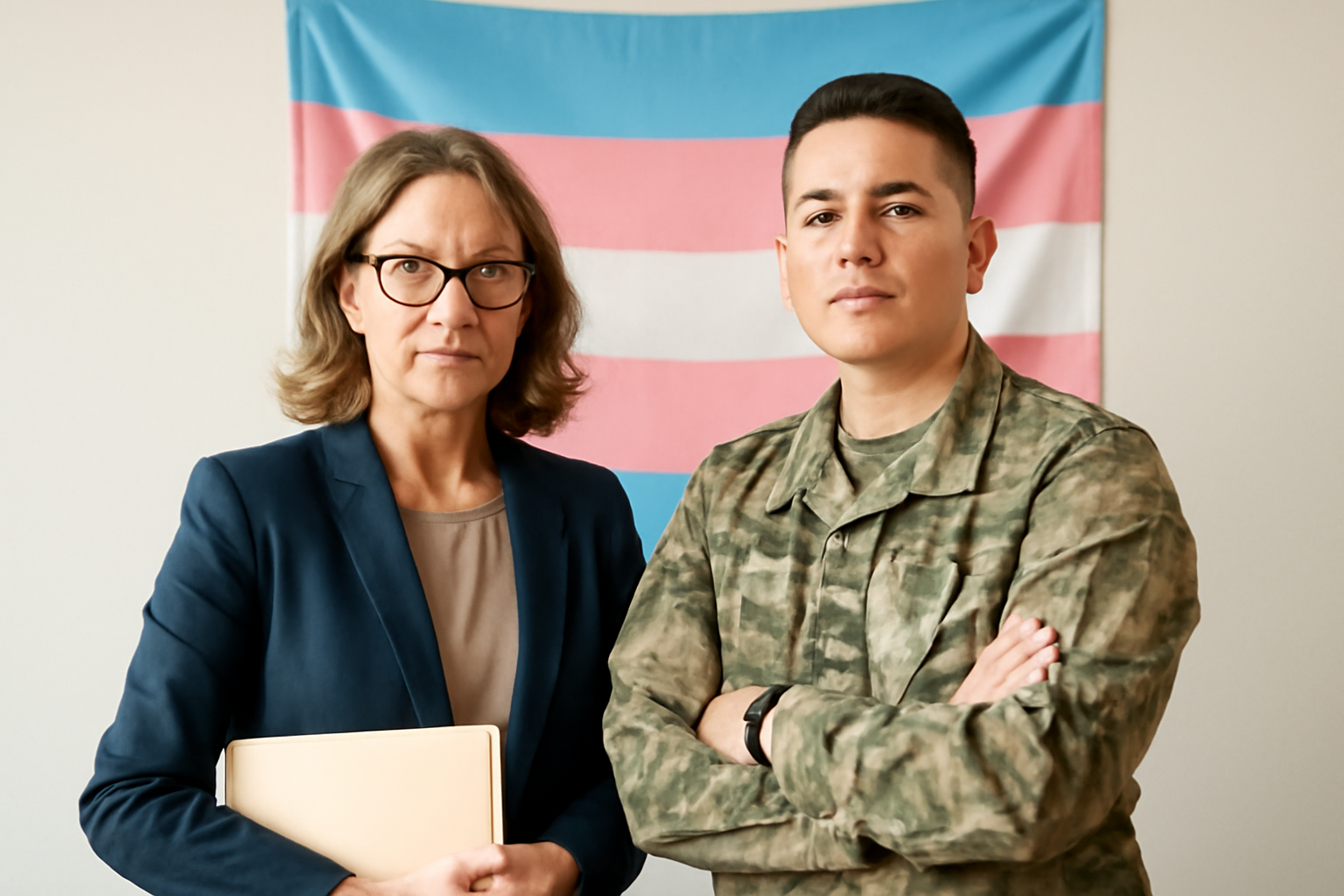
LGBTQ+ Advocacy Groups Sue Over Trans Military Ban
In a significant legal move, leading LGBTQ+ advocacy organizations have filed a lawsuit in federal court to challenge the recent executive order issued by Donald Trump that aims to ban transgender individuals from serving in the U.S. military. The lawsuit, spearheaded by GLBTQ Legal Advocates & Defenders (GLAD Law) and the National Center for Lesbian Rights (NCLR), was filed in the U.S. District Court for the District of Columbia.
The executive order, titled "Prioritizing Military Excellence and Readiness," argues that transgender service is incompatible with military values such as honor and discipline. It mandates the cessation of the use of gender identity-based pronouns and prohibits transgender individuals from using facilities that do not correspond with their biological sex.
The legal case, known as Talbott v. Trump, claims that the executive order violates the Equal Protection Clause of the U.S. Constitution. The suit is brought on behalf of several active-duty service members and potential enlistees, emphasizing that the ban discriminates against transgender individuals who wish to serve their country.
Nicolas Talbott, a 31-year-old second lieutenant in the Army, is one of the named plaintiffs in the case. Talbott, who has been in basic training and officer school for the past six months, expressed a deep commitment to serving the nation, stating, "When you put on the uniform, differences fall away and what matters is your ability to do the job. My being transgender has no bearing on my dedication to the mission, my commitment to my unit, or my ability to perform my duties."
History of Legal Challenges Against Trans Military Bans
GLAD Law and NCLR are not new to legal battles against transgender military bans. In 2017, they led the legal challenge against Trump’s initial ban, filing the Doe v. Trump case. This legal battle resulted in a preliminary injunction that temporarily halted the ban, which was later lifted by the Supreme Court in 2019. The current lawsuit echoes past efforts to dismantle discriminatory policies and secure equal rights for transgender individuals in the military.
The renewed ban has sparked swift reactions from other LGBTQ+ advocacy groups as well. The Human Rights Campaign and Lambda Legal have announced their intentions to file lawsuits to prevent the enforcement of the ban, highlighting widespread opposition within LGBTQ+ communities and allies against such discriminatory measures.
Impact on Transgender Service Members
The executive order has significant implications for transgender individuals currently serving or wishing to serve in the U.S. Armed Forces. Among the plaintiffs in Talbott v. Trump are service members from various branches of the military, including a major, a captain, a sergeant, and a Navy pilot.
Sergeant First Class Kate Cole, who has served over half her life in the Army and participated in combat missions in Afghanistan, emphasized the detrimental impact of the ban on military readiness. Cole stated, "Removing qualified transgender soldiers like me means an exodus of experienced personnel who fill key positions and can’t be easily replaced, putting the burden on our fellow soldiers left behind. That’s just wrong — and it destabilizes our armed forces."
Ensign Dan Danridge, a student flight officer in the Navy, shared similar concerns. Born on a military base, Danridge has been part of the military community his entire life. He emphasized that being transgender does not affect his ability to perform his duties, "Every day I lace up my boots the same as everybody else. I pass the same tests as everybody else. Being transgender is irrelevant to my service. What matters is that I can complete the tasks that are critical to our mission."
The Path Forward
The legal challenge by GLAD Law and NCLR, alongside support from other civil rights organizations, represents a critical effort to uphold the rights of transgender individuals in the military. While the battle against the ban continues in court, advocacy groups are also encouraging public support and awareness about the implications of such discriminatory policies.
For those who wish to stay informed about ongoing developments, subscribing to LGBTQ+ newsletters and briefings can provide valuable insights into how political decisions impact the LGBTQ+ community. The outcome of Talbott v. Trump and similar cases will have lasting implications for the future of transgender rights within the military and beyond.
As the legal proceedings unfold, the plaintiffs and their legal representatives continue to fight for an inclusive and equitable military environment, where service members are judged by their abilities and dedication, not their gender identity.
Related Posts
Triumphant Trans Woman Wins Legal Battle and Inspires Others to Stand Up for Their Rights
Breaking new ground: a landmark victory in transgender rights After battling in courtrooms and enduring endless challenges, Diana Portillo, a transgender woman, has secured a monumental victory in her decade-long fight against workplace discrimination. The result? Nearly $1 million awarded in a historic settlement. But this isn't just a win on paper—it represents a powerful precedent in combati [...]
Pride Month in Latin America: Protests and Demands for Equality
**Celebrating Pride and advocating LGBTQ+ rights in Latin America** Pride Month in Latin America was a lively mix where celebration met activism. Communities united, not just throwing a party but making a stand—demanding equality and pushing governments toward better protection and rights recognition. Throughout Latin America, pride events erupted in marches and cultural displays, each with a c [...]
Transgender Erasure Actions Implemented by National Park Service
```html Trump administration's impact on national park service and transgender recognition The Trump administration made notable moves in undermining transgender representation, which included directing agencies like National Park Service not include "T" and "Q" when they refered “LGBTQ” in any official communication. This move seems part a broader plan by this administration aimed at reducin [...]